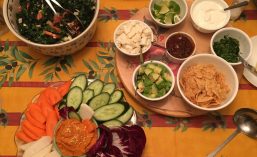Throwing away food feels just like throwing away money— having your groceries go bad so soon after buying them is frustrating to say the least! How can you prevent your good food from going bad for as long as possible? Here are a few tips that may extend your groceries’ lifespan significantly.
Follow Storage Instructions
Any food item comes with ideal circumstances for storage. While you may think you know where foods should go, take the time to learn exactly where each food item has the best chances of “survival”. For example, some fruits and vegetables will last longer unrefrigerated, like tomatoes, bananas, herbs, melons, and squash. Know what foods need to be kept out of moist areas (like mushrooms or grains), and what foods benefit from hydration (like carrots or celery). Pay attention to labels on packaged foods, and research the unpackaged foods to ensure you are storing them properly.
Process It
Consider processing your foods to give them a much longer lifespan! According to Vacuum Sealers Unlimited, using a method like dehydrating, vacuum sealing, or freeze drying will extend the shelf-life. These methods maintain many of the nutrients and much of the flavor of the produce you love, allowing you to use it for months to come without worrying about rot or expiration. If the food item is not able to be processed, then consider freezing it! Most foods can last almost half a year without acquiring freezer burn, which damages the taste and texture of those foods and exposes them to potentially harmful chemicals from your freezer. Plus, frozen foods retain 100% of the nutrients they contain at the moment of freezing.
Buy the Right Foods
Be aware of the freshness of your groceries when you buy them. You can’t blame food for rotting when they were on the verge of doing so even in the store! Prevent waste by meal planning and only buying the produce necessary for those plans. Or, implement a process of cycling through your food to make sure that you’re using your oldest things first—this applies to packaged foods as well as produce. And Then We Saved recommends looking at expiration dates before you buy, and (as much as possible) buying products with a naturally long shelf life like pasta, potatoes, dried meats, canned foods or honey.
Each of these things will help you reduce or even eliminate the frustrating waste that you may have from old and rotten food. Try one or try all and enjoy your fresh food, all the time!
Read this next: How to Fit Healthy Eating Into Your Busy Schedule
